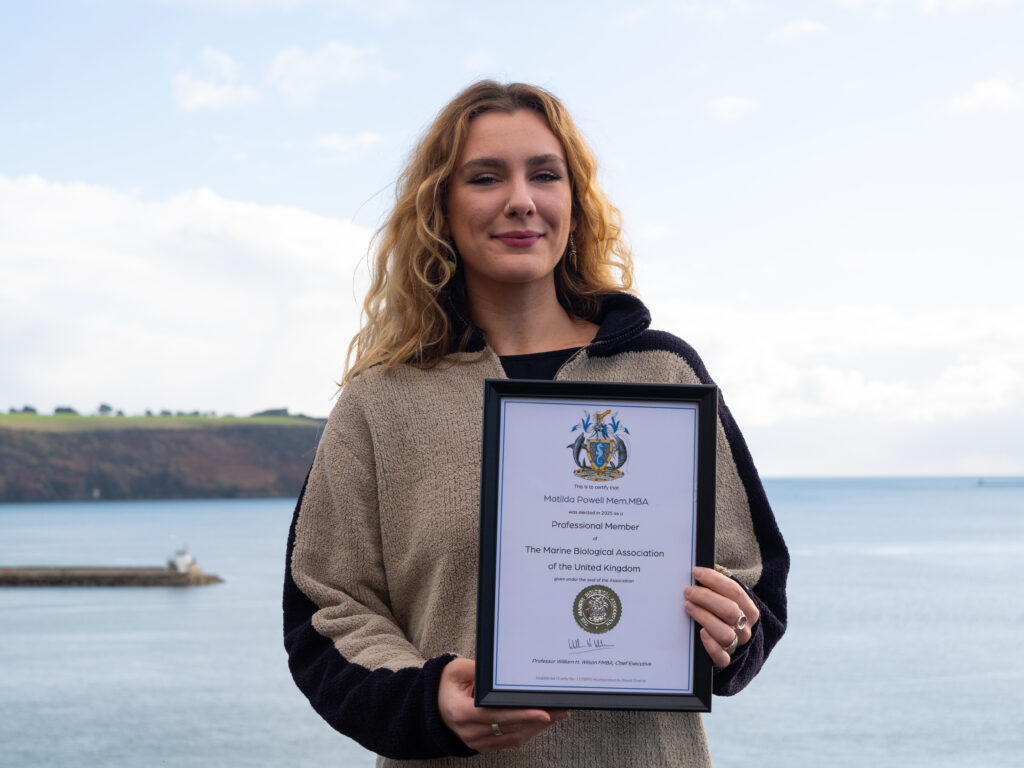The Marine Biological Association (MBA) is pleased to announce the winner of 2025’s prestigious MBA Prize. Matilda Powell, who recently graduated with a BSc (Hons) Marine Biology, First Class from the University of Plymouth, received the prize for ‘Outstanding Performance on a Marine Biology Programme’ for her exceptional academic performance.
The MBA Prize is awarded annually to recognise outstanding contributions to the field of marine biology and recognises the significant impact that individuals can have in advancing our knowledge of marine ecosystems and their conservation. Tilly received a framed certificate and a year’s Professional Membership of the MBA as her prize.

Tilly Powell holding her MBA Prize framed certificate. c. Marine Biological Association
“When I found out I’d won the MBA Prize, I was in complete disbelief; it means so much to my family and me. Beyond the personal pride of completing my degree, this award validates all the hard work and challenges overcome,” says Matilda. “Receiving recognition from the Marine Biological Association is incredibly special; it’s boosted my confidence as I complete my MRes and, professionally, I hope it will highlight my diligence and academic commitment in future research and career applications.”
Matilda took on a complex experimental design for her undergraduate dissertation, which she says initially pushed her out of her comfort zone. Her dissertation investigates the effects of maternal hypoxia on developmental plasticity, and is due to be published this December in The Plymouth Student Scientist e-Journal. “It sparked my passion for experimental design and answering ecologically significant questions,” she says. She is now completing her MRes in Marine Biology at the University of Plymouth, pursuing her interests in ecophysiology.
“Winning the MBA Prize was a complete surprise and a huge honour,” adds Matilda. “It validates all the hard work that went into my degree and has really strengthened my confidence. This recognition motivates me to keep challenging myself and growing as a researcher.”
As for future plans, Matilda says: “My dream job would be to work with the British Antarctic Survey, collecting ecophysiological data. I’d love to investigate how climate change affects species distributions and use that information to understand ecological resilience, physiological thresholds, and evolutionary trajectories. The ultimate goal would be to generate findings that not only advance science but also shape and inform environmental policy.”